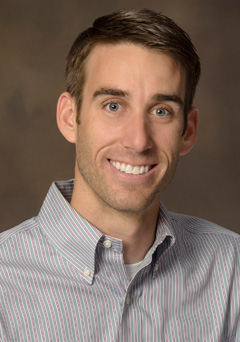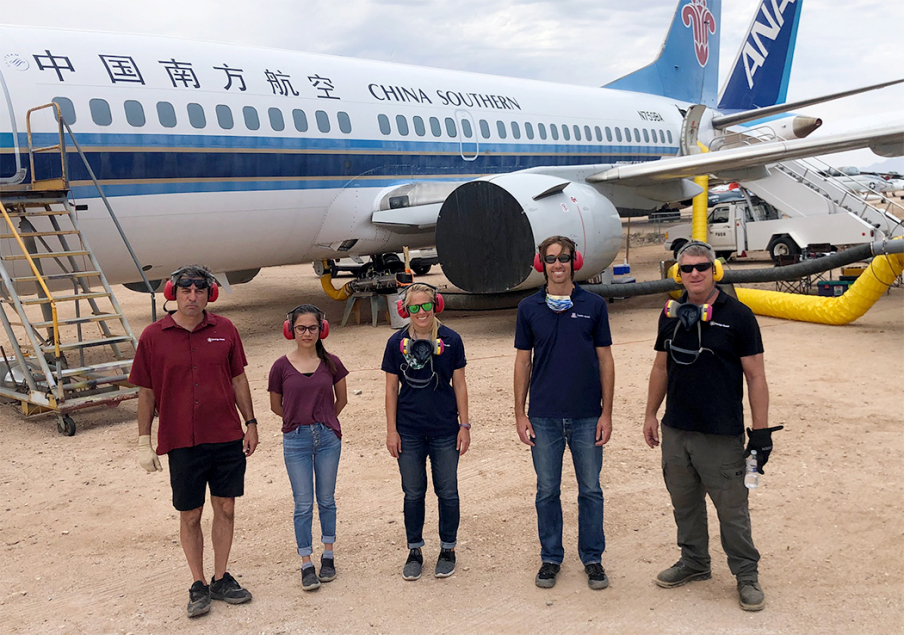For years airline passengers have been concerned with the risk of infection on airplanes. Often they try to protect themselves by cleaning tray tables with wipes, and using hand sanitizer after settling into a cramped seat area. Recently, concern over the risk of infection on an airplane has increased dramatically due to the COVID-19 pandemic. That is how a research project to develop a new method to disinfect airplanes quickly and effectively gained momentum.
Dr. Marc Verhougstraete of the UA College of Public Health and Dewey Benson of Energy Quest Technologies Inc. out of Phoenix, AZ began discussions about disinfecting aircraft between flights using the existing HVAC system connected to a large air conditioning system outfitted with an ozone unit.
Since the initial discussions, Emily Cooksey, a PhD student in MEZCOPH EHS, has collected multiple samples from a Boeing 737 at Pima Air and Space Museum in Tucson. Working with Adam Tejada, an undergraduate student from University of Arizona’s College of Engineering, and Soyasha Pandey, an undergraduate student from Arizona State University’s aerospace engineer program, the airplane environment was outfitted with sensors to measure temperature, humidity, air exchange rates, and ozone concentrations throughout the cabin. Initial testing of viruses placed on surfaces throughout the aircraft cabin (e.g. tray tables and armrests) and ozone treatment showed an 99% reduction of viruses.
With the support of the US Air Force, collaborators University of Arizona, Energy Quest Technologies Inc., and Ohio State University submitted a proposal to the Department of Defense which will expand upon this pilot study to identify optimal treatment conditions, quantify risk of infection to military personnel in aircrafts, and support risk management plans.

Marc Verhougstraete, PhD
Marc Verhougstraete, PhD is an Assistant Professor in the Community, Environment & Policy Department at the Mel & Enid Zuckerman College of Public Health.
Dr. Verhougstraete's primary research has focused on environmental microbiology and water quality. To this aspect, his focus is primarily on understanding the sources, occurrence, and transport of pathogens throughout environmental matrices. Marc's research integrates exposure assessment, environmental characterization, and Quantitative Microbial Risk Assessment to improve environmental management decisions which protect human and ecosystem health. Recent efforts investigated the effects of intervention practices in the healthcare systems to reduce the transmission of pathogenic agents and associated healthcare infections. In all aspects of research, his primary objectives are to prevent human exposure to pathogens through increased scientific understanding of complex environments using a multifaceted toolbox approach.









